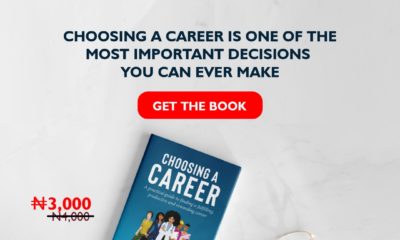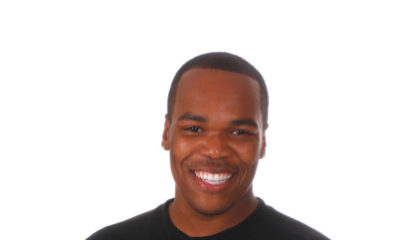Features
Kehinde Akintobi: 5 Pillars of Knowledge for Professional Success
 There is no guarantee to suggest that after spending several years in the tertiary institution, one will become adequately prepared for a fulfilling and rewarding experience in the market place. Indeed, academic brilliance does not guarantee professional success. It has long been discovered amongst distinguished experts that there is a wide gap between the “gown” (academics) and the “town” (the marketplace/ work environment). However, for those who want to experience progress within the market place, there are key pillars of knowledge that they need to put in perspective. Just like pillars provide a strong platform for a building, these pillars can provide a good base for career and professional growth.
There is no guarantee to suggest that after spending several years in the tertiary institution, one will become adequately prepared for a fulfilling and rewarding experience in the market place. Indeed, academic brilliance does not guarantee professional success. It has long been discovered amongst distinguished experts that there is a wide gap between the “gown” (academics) and the “town” (the marketplace/ work environment). However, for those who want to experience progress within the market place, there are key pillars of knowledge that they need to put in perspective. Just like pillars provide a strong platform for a building, these pillars can provide a good base for career and professional growth.
Self knowledge
A number of people have mastered the art of learning about different fields of endeavour and other people whilst they remain ignorant about themselves. You are a subject that needs study to discover and optimize what is unique about you and what you have on the inside. If indeed you are fundamentally responsible for your success, it makes sense to know who you essentially are. What are your hobbies, gifts, talents, aspirations and dreams? What gets you excited, motivated and on the go? Discovering them will provide guidance on what you should focus on in your professional journey. When you do, you will discover your unique advantage and your value proposition which sets you apart fro the crowd.
Functional knowledge
Professions are distinguished by the functions associated with them. In this sense, the functions of an engineer are different from the functions of a medical doctor. Functions are pillars for determining and driving performance. If functions are performed, performance is achieved. What are the disciplines or professions you are interested in? What are the functions you can derive from those professions? Learning about the functions prepares you on the journey to effectively carry them out. It is important to note that work/ market place functions may have no correlation with academic course of study. Essentially, it is by understanding the functions tied with work that one is prepared to execute them. Rather than being a graduate of Theatre Arts, it is interesting that popular comedian, Basketmouth studied Sociology and Anthropology whilst in university. He obviously must have learnt about the functions of a comedian to have become a master of comedy.
Organizational knowledge
Work is expressed in work environments. The work environment provides information about how the work should be carried out in the first place. Oracle and SAP are both within the Information Technology space but they are two distinct organizations with their different work cultures, approaches and unique expressions. How work is carried out within Oracle is different from how it is done in SAP. To be a master of work, one must also understand, appreciate and master the work environments one finds himself or herself in. A lot of candidates fail woefully in interviews because they do not research well enough about organizations they want to work in. To be able to solve a company’s problems or address their needs, it helps to understand the organization first. When you do, you set yourself up in the right direction.
Industry knowledge
Professionals who take the notch higher are not just masters of themselves or masters of organizations but they have also become masters of industries. Masters of industries are people who understand the peculiarities within specific industries and have gathered useful knowledge and experience about them. As such, they can translate success from one company to the other, applying the same principle and getting the same results. There are peculiar issues that pertain to specific industries and people with industry knowledge put themselves at an advantage because of this. Where opportunities exist, they are likely to be considered first.
Macro-economic knowledge
Individuals, professions, organizations and industries do not exist in isolation. They are all directly under the impact of a macro-economy. As such, understanding the macro-economic indicators and adequately interpreting and planning for them can distinguish you in the marketplace. What is the impact of the forex exchange rate on your organization? What are the related economic policies of the current administration? What trends have impacted on your profession? If you understand and apply these things, it will do your professional journey some good,
In every phase of life, there are rules and keys required for a productive experience. These 5 pillars of knowledge, if applied can create a pathway for a productive experience in your professional journey and the marketplace.
























